Chapter 4: Basic Neurological Instrumentation Blades, Knife Holders, Cautery Scissors, Needles, Needle Holders Drills, Bits, Rongeurs, Curettes Alternative Name: None Category: General Purposes: Used to establish a trajectory in the brain toward a particular target, e.g., ventricle for CSF drainage or mass for biopsy. Smooth end and shaft allow less traumatic trajectory through brain tissue. Stylet can be removed to confirm position or can be used with navigation systems for stereotactic guidance. Alternative Names: Patty, strip, called out by the measurement of the patty (e.g., half by half), cotton strip or patty Category: General Purposes: Multipurpose cotton patties, more commonly used in hemostasis maneuvers involving Gelfoam, Surgicel, or other hemostatic agents. The patty is placed over the agent and the suction draws either blood or fluid, facilitating coagulation. Can be used to apply bone wax atraumatically. Also used as either a wick to draw fluid away or as a protection barrier over vital structures. Many other uses exist. Has a radiopaque strip down the middle. Varieties: Square and rectangular shapes. Multiple sizes. Alternative Names: Ray-tec, sponge, 4×4 Category: General Purposes: Cotton sheets serving a multitude of purposes, e.g., cleaning, hemostasis, wicking, holding tissue, placement under skin flaps, etc. Filament in sponge allows X-ray detection. Alternative Name: Poppen suction Category: General Purposes: Used for suction of fluids in confined spaces. Thumb hole allows on-and-off style of suction. Also used as a retractor, protection device, and blunt dissection tool, when removing tumor or brain parenchyma. Varieties: Straight or angled. Various diameters of tips. Alternative Names: Ligaclip applier, vascular clip applier, vessel clip applier Category: General Purposes: Used for applying small metal clips for occlusion of vessels. Multiple sizes of clips are available for a diverse range of vessel sizes. Varieties: Accommodation of various sized clips. Variable lengths. Alternative Names: Asepto, Asepto syringe, bulb syringe, water, big irrigation, flush Category: General Purposes: Refillable bulb syringes used for directed irrigation of the surgical site. Varieties: Multiple sizes and shapes of syringes. Alternative Name: Peanut Category: General Purposes: Small rolled-up gauze usually held by a Kelly, Crile, or mosquito clamp and used to dissect tissue bluntly or to clear area for improved visualization. Often used to clean tissue off bone, e.g., prevertebral tissue in ACDFs, lamina for screw placement, etc. Varieties: Single or multi-packs. Alternative Names: Raney clip appliers, skin/scalp clip appliers Category: General Purposes: Application of Raney clips to skin flap edges during craniotomy for hemostasis. Varieties: Reusable or disposable. Alternative Name: None Category: General Purposes: Designed for subcutaneous passage of shunt catheters. Caution is always advised when using this passer, as it can pass through fascia, putting vascular and vital tissue structures at risk of injury. Hole in tip allows catheter to be sutured and secured to passer. Is often accompanied by a plastic sheath. Shorter lengths can also be used to pass electrodes in functional cases or for the creation of subcutaneous tunnels for bypass grafts. Varieties: Various lengths. Reusable or disposable. Alternative Names: Rubber shod, clamp boots, catheter holders Category: General Purposes: Small rubber tips for clamps that prevent the serrations from damaging what is being held. Often used to handle shunt or pump catheters. Also used to clamp sutures, since the suture can slip through the serrations of most clamps. Varieties: Single or multi-packs. Various colors. Alternative Name: Tonsil suction tip Category: General Purposes: Large-bore suction useful in large surgical exposures. Tip designed to minimize surrounding tissue damage when suctioning. Varieties: Straight or angled. Protected or non-protected tip. Metal or plastic. Reusable or disposable. Alternative Name: Skin knife Category: Blades Purposes: Large knife blade often used to make skin incisions. Varieties: None. Various handle types. Alternative Name: None Category: Blades Purposes: Cutting knife used for fine, precise cutting and dissection of tissues. Often used for initial arteriotomies, opening dura through burr holes, harvesting pericranium, etc. Can be used with the monopolar to make precise holes in the dura when in contact with the monopolar. Varieties: None. Various handle types. Alternative Name: None Category: Blades Purposes: Cutting knife used for fine and precise cutting and dissection of tissues. Often used in pediatrics, skin revisions, harvesting pericranium, and initiating dural incisions. Varieties: None. Various handle types. Alternative Name: Often called by the blade type attached Category: Knife Holders Purposes: Smaller knife handle used when cutting is required in a small or confined space. Holds 10, 11, 12, and 15 blades. Varieties: Various shaft lengths. Alternative Name: Often called by the blade type attached Category: Knife Holders Purposes: Knife handle used for general cutting needs, most often used for skin incisions. Holds 10, 11, 12, and 15 blades. Varieties: Various shaft lengths. With and without ruler. Alternative Names: Bovie, electric knife, cutter, pen knife, cauterizer Category: Cautery Purposes: Allows cauterization using high-frequency electrical current through a single electrode that serves as the knife end. The patient’s body serves as a ground. Two settings are usually present, one for cutting and the other for cauterization. Varieties: Universal design. Multiple types of tips, e.g., ring, pinpoint, insulated, etc. Alternative Names: Metz, curved Metz, Ragnell, tissue scissors, curved tissue scissors Category: Scissors Purposes: Useful for macroscopic cutting, dissecting, or undermining delicate soft tissues. Should only be used to cut tissues. Common uses include cutting dura, fascia, ligated vessels, and muscle. Varieties: Straight or curved blades. Variable lengths of arms. Alternative Names: Metz, fine Metz, fine tissue scissors Category: Scissors Purposes: Useful for macroscopic cutting, dissecting, or undermining delicate soft tissues. Should only be used to cut tissues. Common uses include cutting dura, fascia, ligated vessels, and muscle. Varieties: Straight or curved blades. Variable lengths of arms. Alternative Names: Long Metz, curved Metz, tissue scissors, curved tissue scissors Category: Scissors Purposes: Useful for macroscopic cutting, dissecting, or undermining delicate soft tissues. Should only be used to cut tissues. Common uses include cutting dura, fascia, ligated vessels, and muscle. Varieties: Straight or curved blades. Variable lengths of arms. Alternative Name: Suture scissors Category: Scissors Purposes: Mainly used for cutting sutures or other non-delicate material. Varieties: Various lengths of blades and handles. Alternative Name: Rarely referred to by their name based on their size Category: Needles Purposes: Triangular-shaped needle tip that cuts through tissue as it is placed through tissue. Varieties: Straight or curved. Various sizes and diameters of the needle. Various types of suture attached. Alternative Names: Rarely referred to by their name based on their size Category: Needles Purposes: Rounded needle displaces tissue as it is placed through tissue. Varieties: Straight or curved. Various sizes and diameters of the needle. Various types of suture attached. Alternative Names: Cooley needle holder, DeBakey needle holder, Crile-Wood needle holder, needle driver Category: Needle holders Purposes: Locking needle holder used for a multitude of needle sizes. Most common needle holder. Varieties: Smooth or serrated jaws. Various lengths. Various materials. Alternative Names: Cooley needle holder, DeBakey needle holder, Crile-Wood needle holder, needle driver Category: Needle holders Purposes: Locking needle holder used for a multitude of needle sizes. Varieties: Smooth or serrated jaws. Various lengths. Various materials. Alternative Names: Adson with teeth, Bunny forceps, pickups with teeth, skin forceps, skin pickups Category: Forceps Purposes: Used for grasping and holding superficial tissues, especially during closing superficial wounds. Allows precise grabbing of skin edges for improved tissue approximation with minimal tissue injury. Sharp teeth can penetrate fragile tissue, surgical materials (shunt valves, catheters), and gloves. Varieties: The number of teeth, 1×2 or 2×3. No variety in length. Alternative Names: Brown-Adson forceps or pickups, Brown forceps or pickups Category: Forceps Purposes: Used for grasping and holding superficial and/or delicate tissues. The interlocking teeth reduce tissue injury. Sharp teeth can penetrate fragile tissue, surgical materials (shunt valves, catheters), and gloves. Alternative Names: Bayonet, bayonet Cushing, bayonet Cushing tissue forceps, Jansen tissue forceps Category: Forceps Purposes: Multitude of uses involving grasping or holding delicate tissue. Allows better visualization of targeted tissue due to bayonet feature. Long arms allow use in deep spaces. Varieties: Length of arms. The handle will have either a rounded end (Jansen) or edged end (Cushing) that allows scraping abilities. Alternative Names: DeBakeys, DeBakey pickups, tissue pickups, tissue forceps, vascular forceps, vascular tissue forceps Category: Forceps Purposes: Non-traumatic grasping and holding forceps designed for very delicate tissue or vessels. Often used in macroscopic vascular cases. Can also be used for handling tubing and other surgical implants and their cables. Varieties: Variable instrument lengths. Alternative Names: Cushing bipolars, Rhoton forceps, Malis bipolars, bayonet, bipolar forceps, bipolars Category: Forceps Purposes: Coagulation of tissue between the tips of the forceps, which must be in close contact to allow current to flow through tissue. Variable current allows highly tailored effectiveness. Can be used as a dissection instrument or for general grasping of delicate tissues. Varieties: Straight, curved, or angled tips. Insulated tips or not. Irrigating or not. Short and long. Blunt or fine tips. Alternative Names: Cushing forceps, Semken forceps, forceps without teeth, smooth forceps Category: Forceps Purposes: Multipurpose atraumatic forceps used for grasping, holding, retracting, countertraction, and stabilizing various tissue types. Alternative Names: Pickups with teeth, Gerald with, Cushing with teeth (incorrect) Category: Forceps Purposes: Grasping and holding forceps designed for very delicate tissue or vessels. Great for holding hearty tissue, e.g., dura, fascia, etc., for stabilization during suturing or retraction. Alternative Names: Semken forceps with teeth, rat tooth forceps, forceps with teeth Category: Forceps Purposes: Multipurpose sharp-toothed forceps used for grasping, holding, retracting, countertraction, and stabilizing moderate to heavy tissue types. Most often used in wound closures, except not directly on the skin. Alternative Names: Pituitary, tissue forceps Category: Forceps Purposes: Grasping and manipulating tissue during endonasal/transsphenoidal cases. Can be used for tissue grasping and biopsy samples in cranial and spinal cases. Varieties: Straight or angled jaws. Various jaw sizes. Variable length of instrument. Alternative Names: Bayonet, bayonet Cushing, bayonet Cushing tissue forceps, Jansen tissue forceps Category: Forceps Purposes: Multitude of uses involving grasping or holding delicate tissue. Cupped jaws allow more secure tissue purchase. Long arms allow use in deep spaces. Good for grasping biopsy samples and fat grafts. Varieties: Length of arms. Size of jaws. Alternative Names: Clamp with teeth, tissue clamp Category: Clamps Purposes: Used in securing, lifting or holding masses or tissue destined for resection, e.g., spinal lipoma, large intracranial meningioma, or fat for fat graft. The interlocking teeth reduce tissue injury. Also used for securing cords, cables, and suction tubing to the surgical drapes. Varieties: The number of teeth, 4×5, 5×6, or 9×10. May be curved or straight and come in a variety of lengths. Alternative Names: Clamp, Crile clamp, Lahey clamp, Halstead clamp, Adson clamp, Mixter clamp, obtuse clamp, snap, hemostat Category: Clamps Purposes: Clamping or occluding vessels or delicate tissue. Used also to dissect tissue planes. Used commonly to grasp and occlude vessels. May be used to pass a suture tie around occluded vessels. Also can be used to secure items to the surgical drape. Varieties: Straight, curved, and angled. Variable lengths of handles. Alternative Names: Clamp, Lahey clamp, Halstead clamp, Adson clamp, Mixter clamp, obtuse clamp, snap, hemostat Category: Clamps Purposes: The most commonly used clamp. Clamping or occluding vessels or delicate tissue. Used also to dissect tissue planes. Used commonly to grasp and occlude vessels. Also can be used to secure items to the surgical drape. Varieties: Straight, curved, and angled. Variable lengths of handles. Alternative Names: Sponge stick, ringed forceps, Fletcher sponge stick (incorrect) Category: Clamps Purposes: Large forceps good for grasping and holding tissues. Most commonly used with a 4×4 mounted, and used for surgical prepping, blunt dissection, and improving visualization by soaking up blood in large wounds. Varieties: Straight or curved. Variable lengths of arms. Smooth or serrated jaws. Alternative Names: Clamp, mosquito, Halstead, Hartman, hemostat, mini snap, snap Category: Clamps Purposes: Often used for clamping or occluding vessels and/or delicate tissue. Also can be used to secure items to the surgical drape or to hold sutured tissues for retraction, e.g., dura. Varieties: Straight or curved jaws. Alternative Names: Clamp, Crile clamp, Rochester clamp, Pean clamp, hemostat Category: Clamps Purposes: The most commonly used clamp. Used to clamp or occlude vessels or delicate tissue. Used also to dissect tissue planes. Used commonly to grasp and occlude vessels. Also can be used to secure items to the surgical drape. Varieties: Straight, curved, and angled. Variable lengths of handles. Alternative Names: Koch clamp, Ochsner clamp, Rochester-Ochsner clamp, clamp with teeth, bone clamp Category: Clamps Purposes: Used in securing, lifting, or holding masses or tissue destined for resection, e.g., spinal lipoma, large intracranial meningioma, fat for fat graft, and fascia for approximation. Also used for stabilizing bony fragments, e.g., fibula for graft molding, spinous processes for lifting and removal, etc. Varieties: Straight or curved jaws. Variable lengths. Alternative Names: Clamp, mosquito, Halstead, Hartman, hemostat, mini snap, snap Category: Clamps Purposes: Often used for clamping or occluding vessels and/or delicate tissue. Also can be used to secure items to the surgical drape or to hold sutured tissues for retraction, e.g., dura. Varieties: Straight or curved jaws. Alternative Names: Backhaus clamp, Edna clamp, Jones clamp, Peers towel clamp Category: Clamps Purposes: Multipurpose instrument for securing items to surgical drapes, grasping thick tissue, tumor, or bone for retraction or countertraction. Varieties: Perforating/non-perforating or sharp/blunt ends. Variable lengths of arms. Hinged or spring self-retaining mechanism. Alternative Names: US, Army, US Army, or Navy retractor Category: Retractors Purposes: Maintaining retraction in small wounds. Alternatively, these retractors can be used to push tissue out of the way as well. Good for anterior fat harvest, initial parts of MIS (posterior and lateral) cases, and functional implant cases. Alternative Names: Curved tissue retractor, Cushing nerve retractor, curved Cushing retractor Category: Retractors Purposes: Retraction of skin or muscle flaps, especially during craniotomies. Also used when making burr holes for protection from surrounding tissue interference by pushing away tissue and placing the drill bit within the curve of the instrument tip. Alternative Names: Fish hooks, flap hooks, dural fish hooks, Songer hooks Category: Retractors Purposes: Retraction of skin, muscle, or dural flaps. The hooks attach to cables (springed or not), which are secured to the drapes. Minimally traumatic retraction system for craniotomy flaps. Varieties: Sharp or dull hooks. Springed or not cables. Single or double hooks. Alternative Names: Angled Gelpi, short Gelpi Category: Retractors Purposes: Used for retraction of surface tissue to allow for improved visualization of the surrounding area. Sharp ends provide point retraction of wound. Used throughout neurosurgical procedures for superficial and deep tissue retraction. Varieties: Curved and angled ends. Various lengths. Locking and not. Alternative Names: Cottle skin hook, Gilles skin hook, Freer skin hook, skin hook, single hook Category: Retractors Purposes: Retraction of skin and muscle for increasing wound exposure. Useful for holding pericranium during harvesting or for holding up skin flaps. Varieties: Sharp or blunt hook. Various lengths. Alternative Names: Blunt Joseph hook, blunt Cottle double hook, skin hook Category: Retractors Purposes: Retraction of skin and muscle for increasing wound exposure. Useful for holding pericranium during harvesting or for holding up skin flaps. Alternative Names: Joseph hook, Guthrie hook, Cottle double hook, skin hook Category: Retractors Purposes: Retraction of skin and muscle for increasing wound exposure. Useful for holding pericranium during harvesting or for holding up skin flaps. Alternative Names: Angled Gelpi, short Gelpi Category: Retractors Purposes: Used for retraction of surface tissue to allow for improved visualization of the surrounding area. Sharp ends provide point retraction of wound. Used throughout neurosurgical procedures for superficial and deep tissue retraction. Varieties: Curved and angled ends. Various lengths. Locking and not. Alternative Names: Malleable retractor, brain ribbon, brain retractor Category: Retractors Purposes: Flexible handheld or mountable brain retractor. Can be shaped for custom retraction angles. Varieties: Various widths, shapes, and materials. Alternative Names: Jansen-mastoid, Weitlaner-Mollison, Weitlaner, small Weitlaner, mastoid Category: Retractors Purposes: Self-retaining retraction system for skin and soft tissue. Can be used for any small skin incisions, percutaneous screw placement, or any other procedure utilizing only small incisions. Varieties: Straight, curved, or angled arms. Sharp or blunt teeth. Single or multi-toothed jaws.
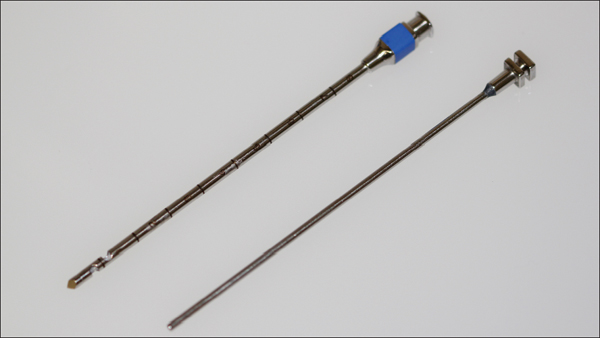
Brain Needle
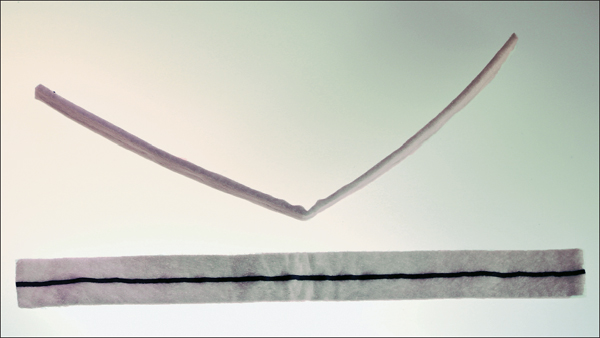
Cotton Patty
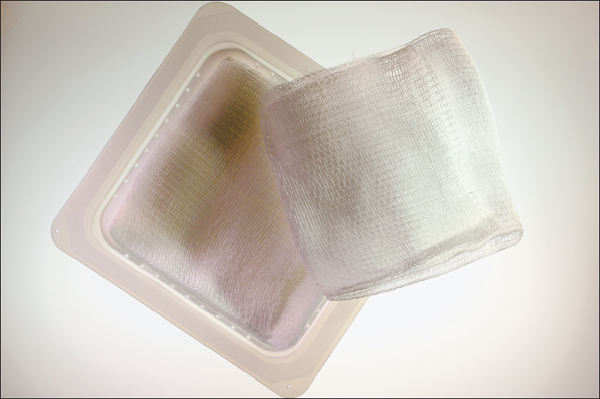
Cotton Sponge
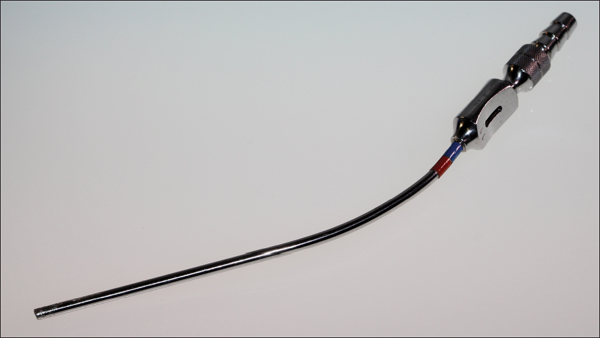
Frazier Suction
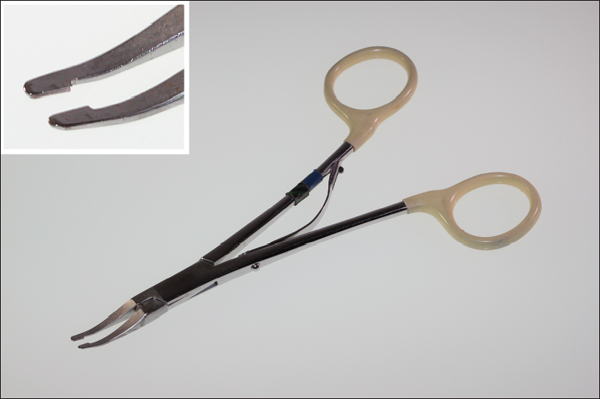
Hemoclip Applier
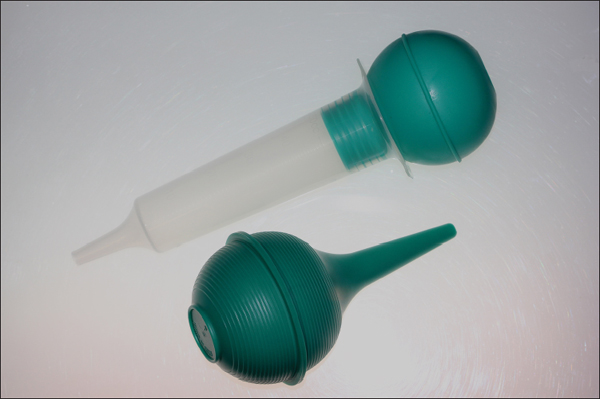
Irrigator
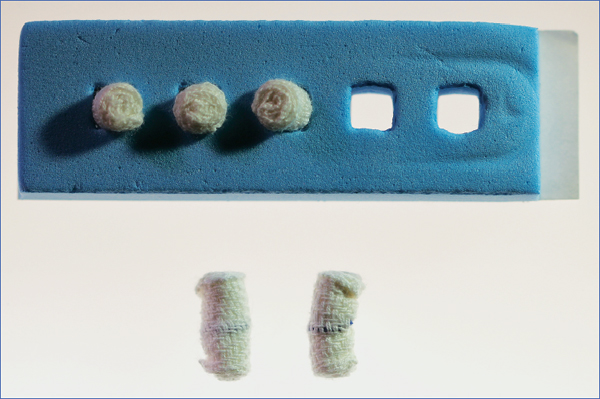
Kittner
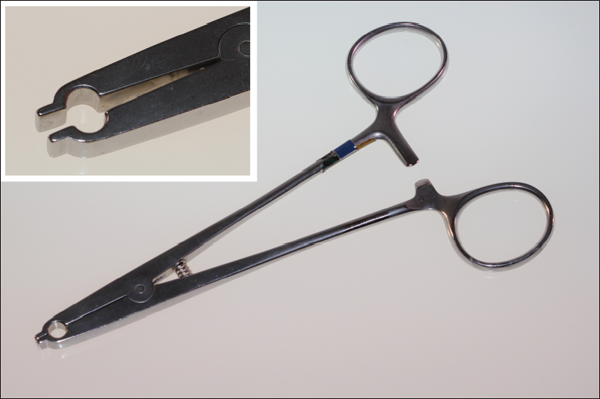
Raney Applier
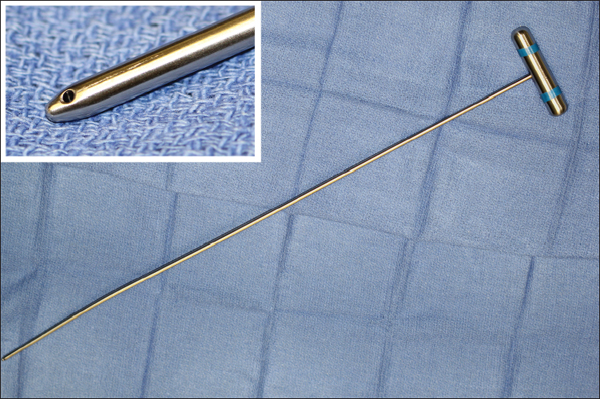
Shunt Passer
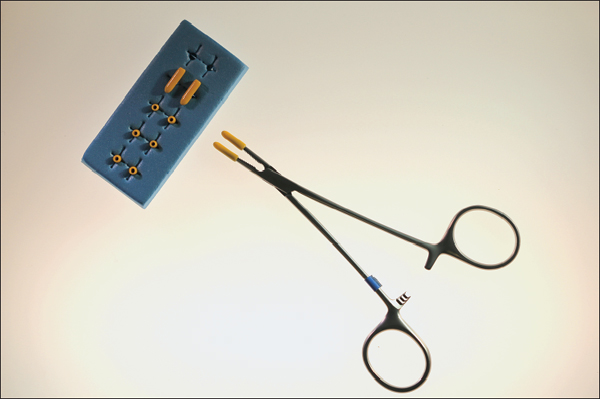
Suture Boots
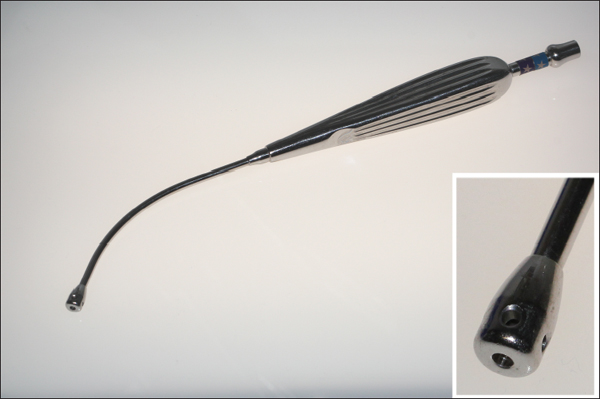
Yankauer Suction
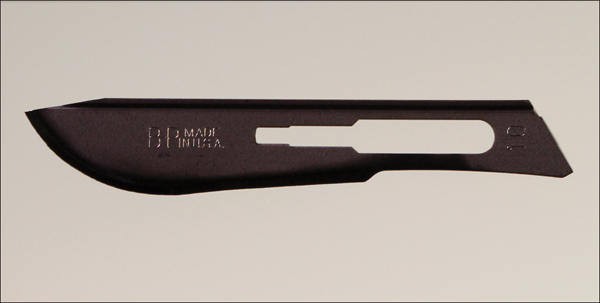
10 Blade
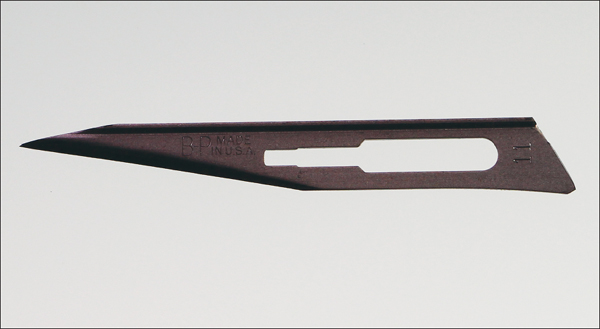
11 Blade
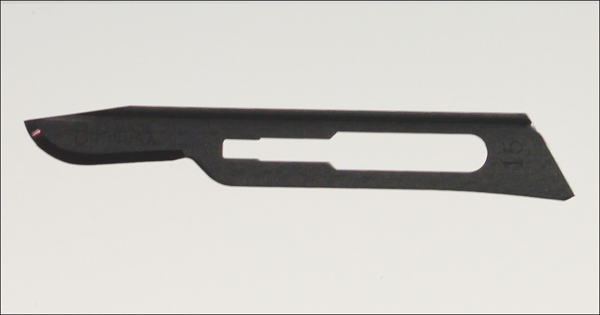
15 Blade
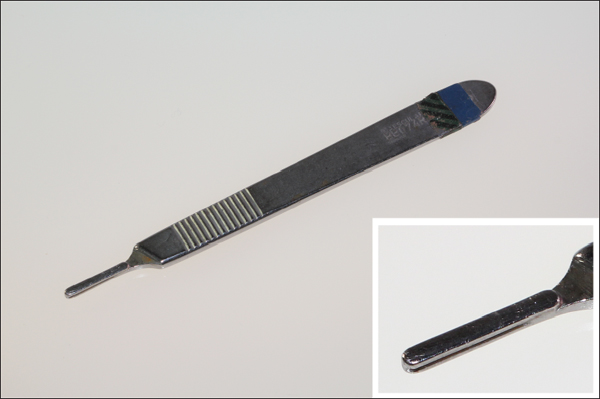
Knife Holder #3
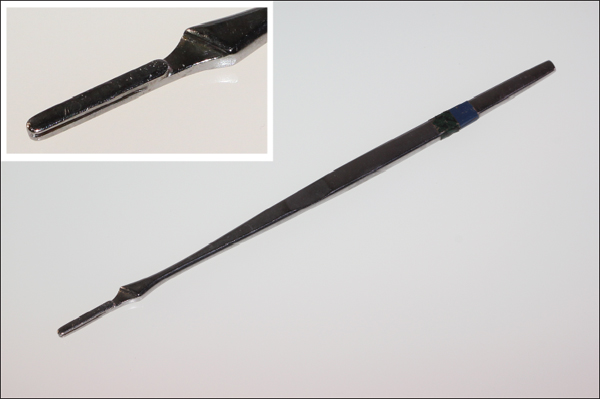
Knife Holder #7
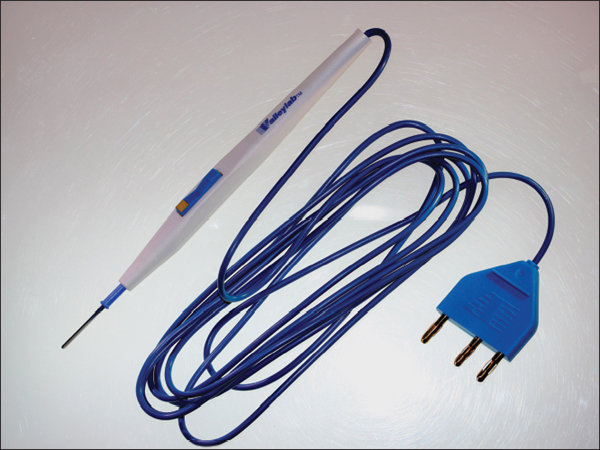
Monopolar
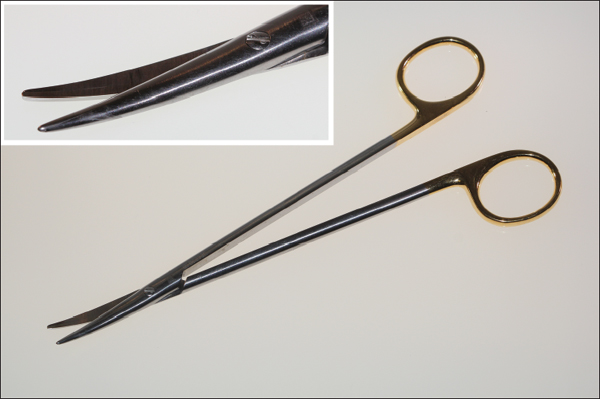
Curved Metzenbaum Scissors
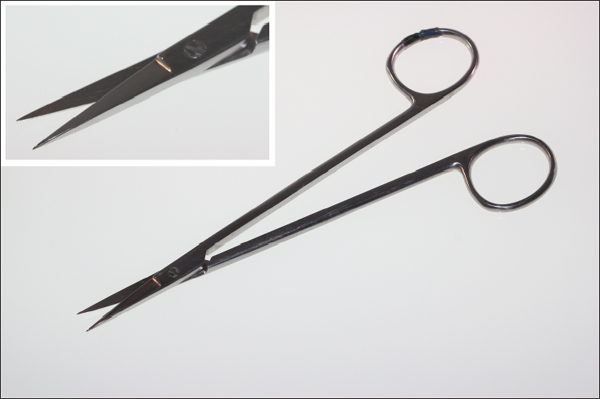
Fine Metzenbaum Scissors
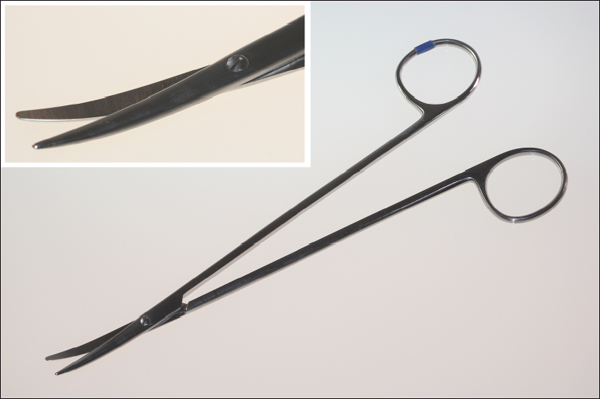
Long Curved Metzenbaum Scissors
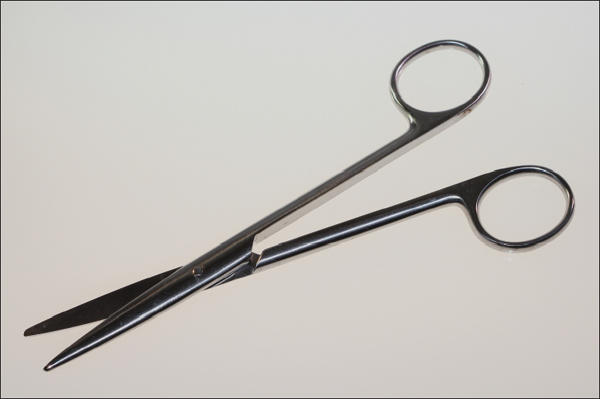
Mayo Scissors
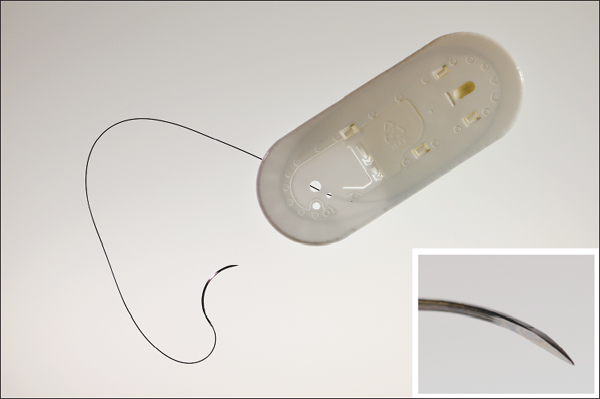
Cutting Suture Needle
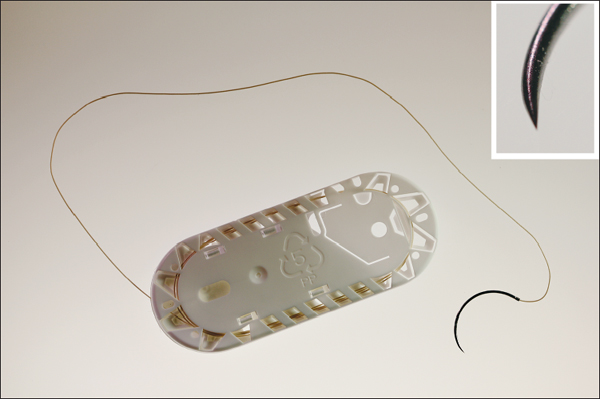
Tapered Suture Needle
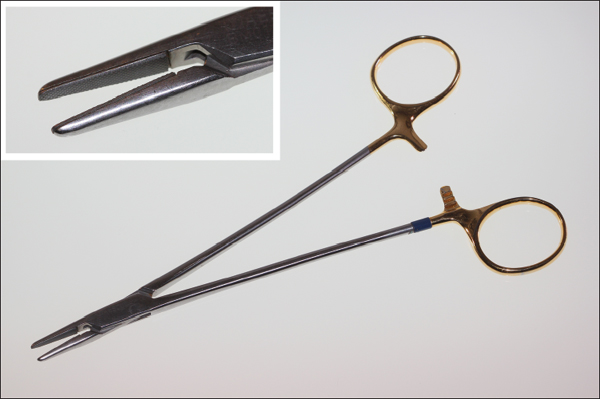
Mayo-Hegar Needle Holder
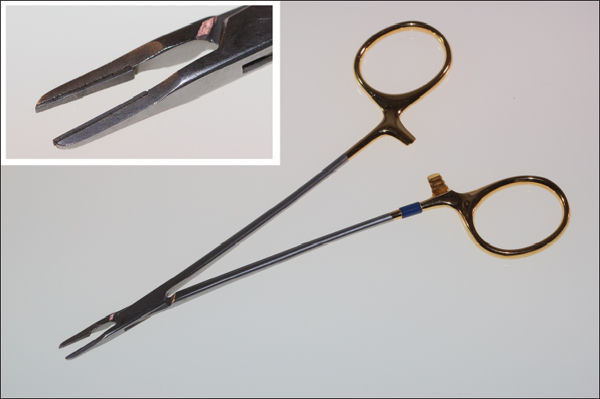
Ryder Needle Holder
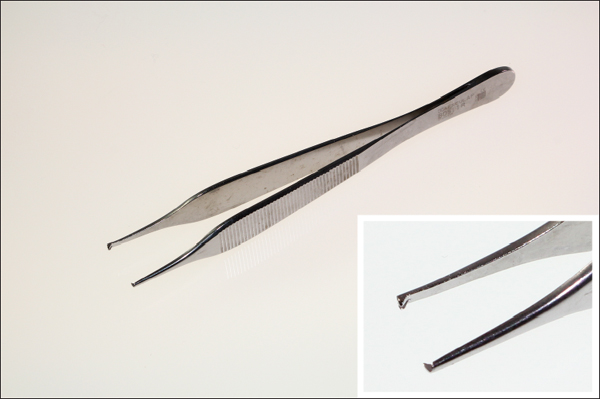
Adson Forceps
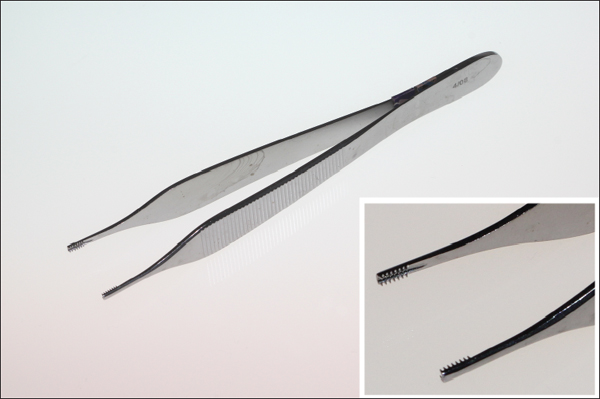
Adson Brown Forceps
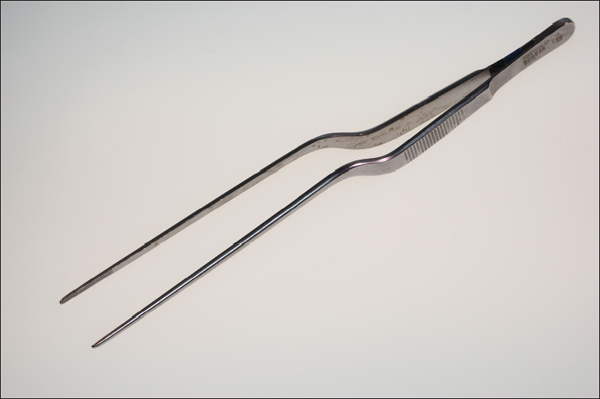
Bayonet Tissue Forceps
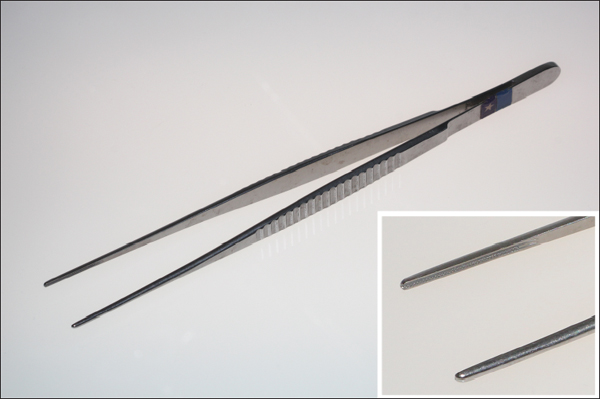
DeBakey Forceps
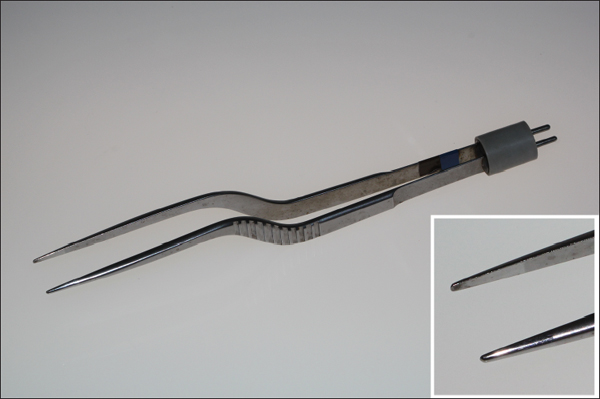
General Bayonet Bipolar Forceps
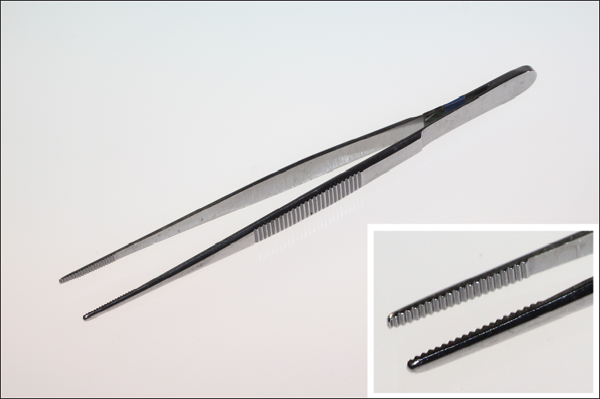
General Tissue Forceps
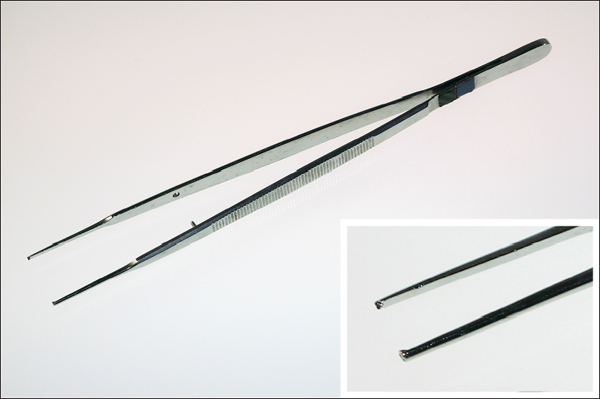
Gerald with Teeth
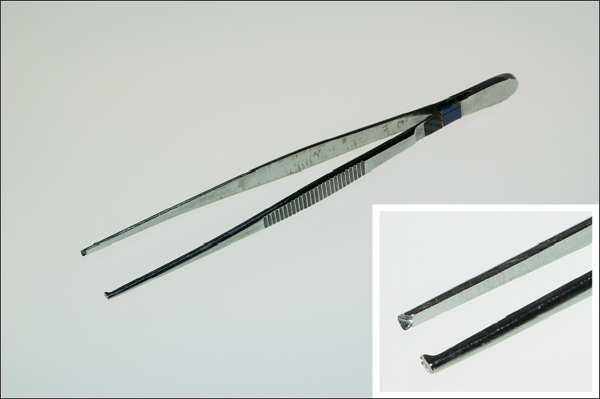
Large Tissue Forceps
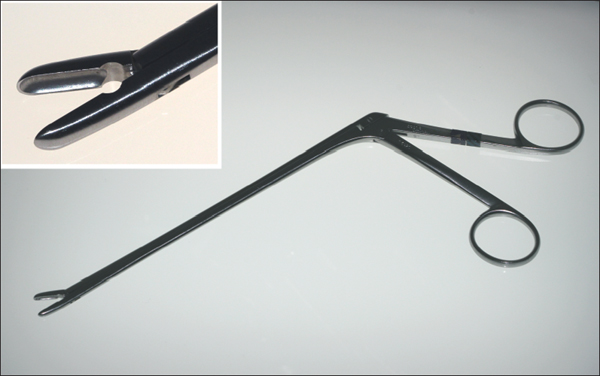
Takahashi Forceps
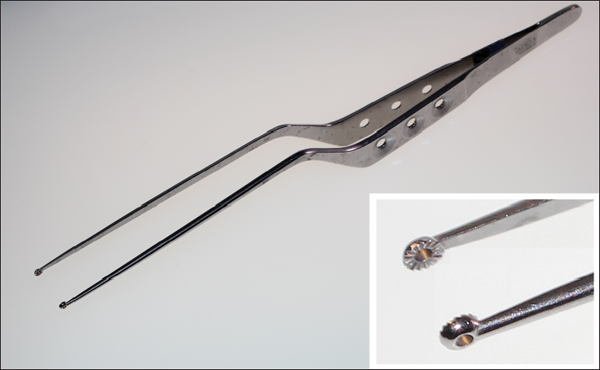
Yasargil Bayonet Tissue Forceps
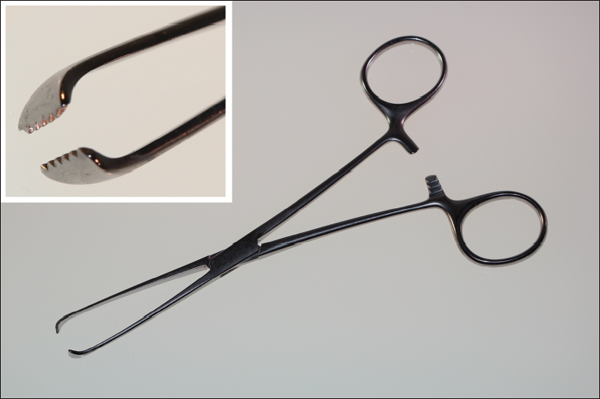
Allis Clamp
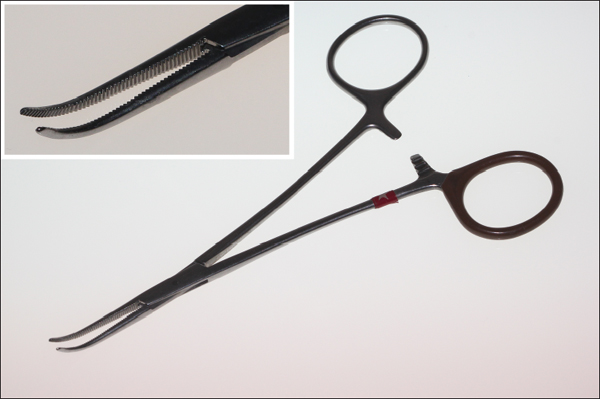
Classic Clamp
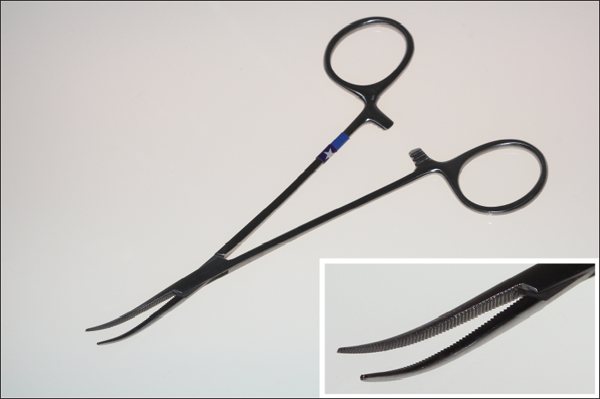
Crile Clamp
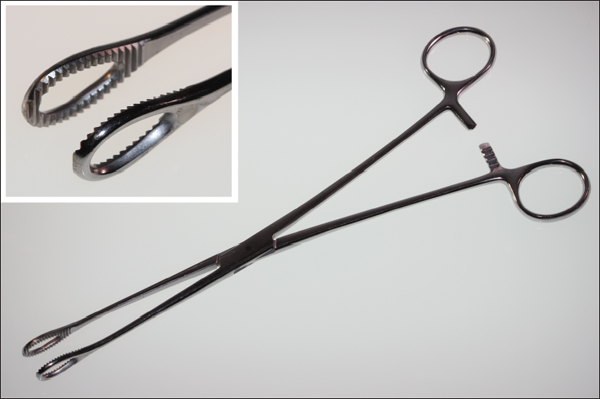
Foerster Sponge Stick
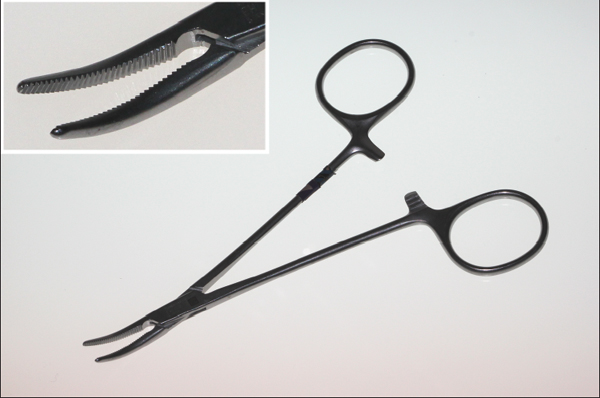
Halstead Mosquito Clamp
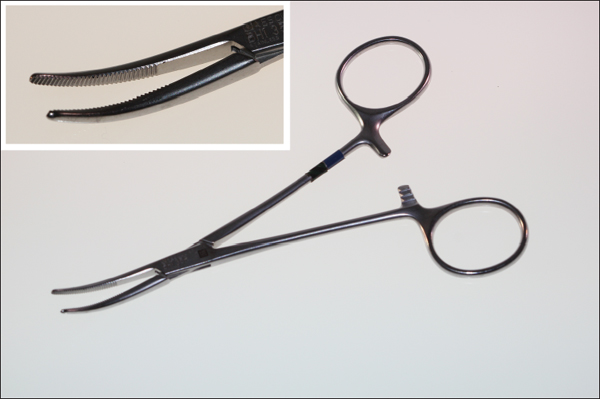
Kelly Clamp
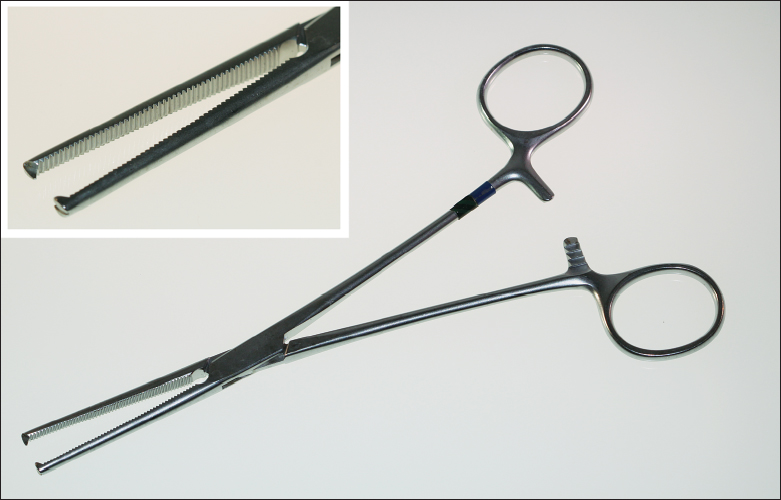
Kocher Clamp
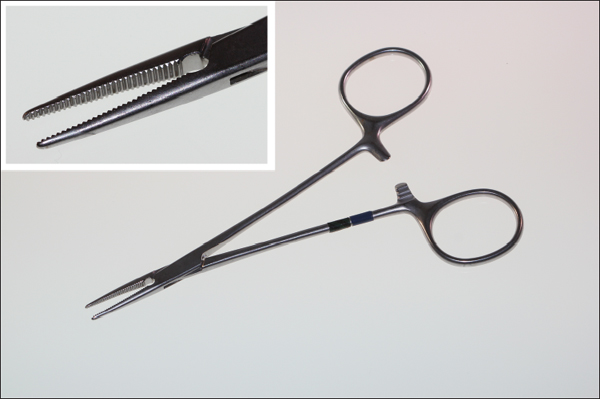
Straight Halstead Mosquito Clamp
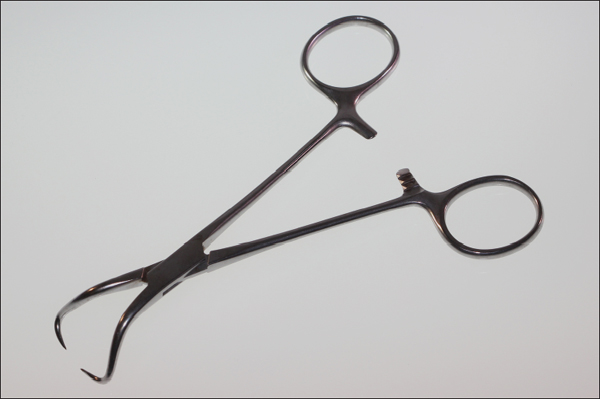
Towel Clamps
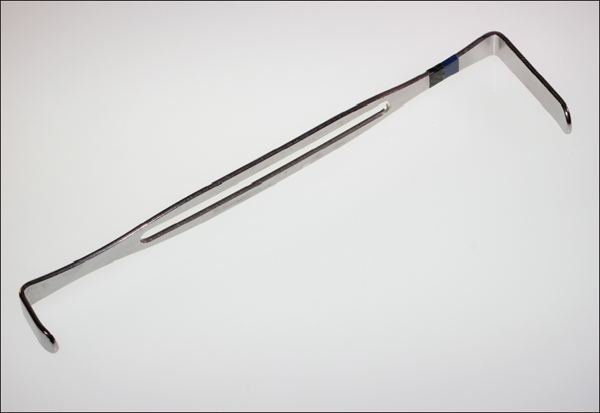
Army-Navy Retractor
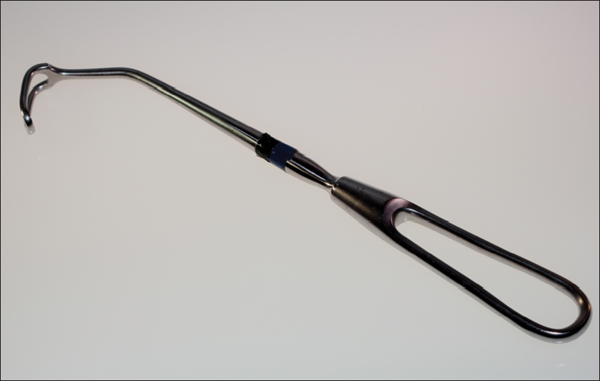
Cushing Retractor
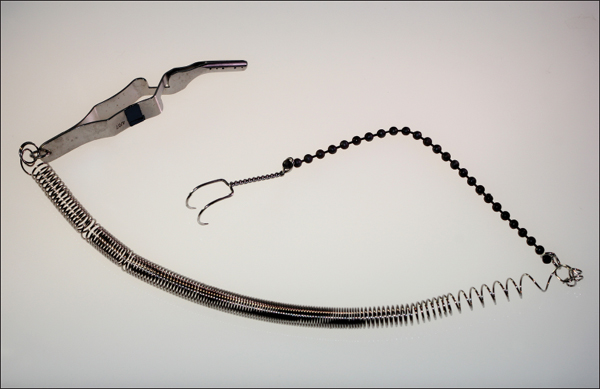
Fish hooks with Songer cables
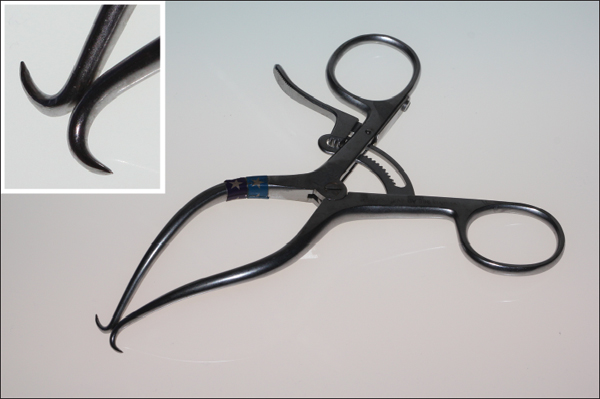
Gelpi Retractor
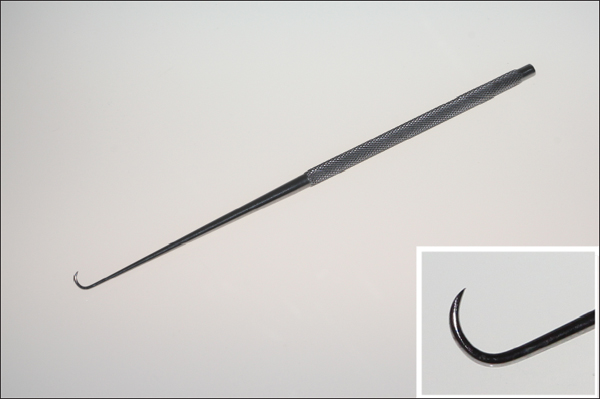
Joseph Skin Hooks
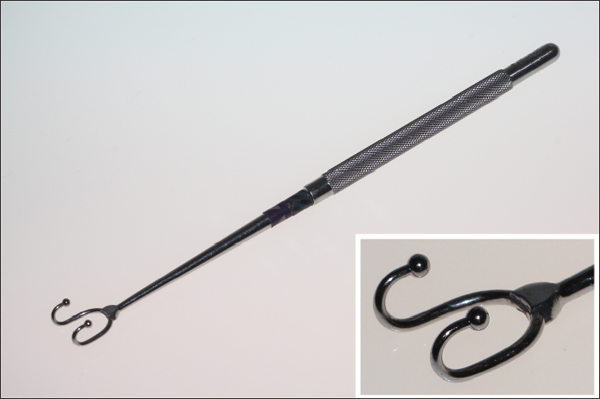
Joseph Skin Hooks 2-Prong
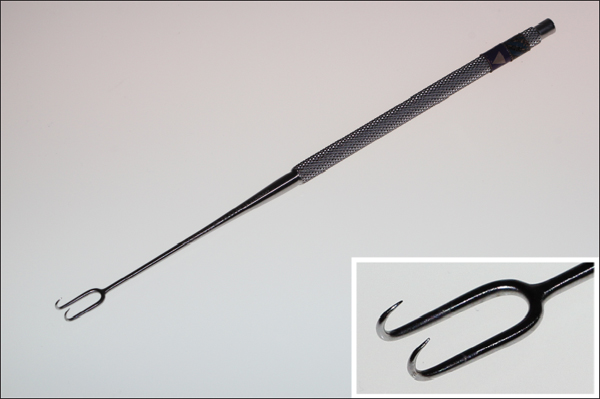
Joseph Skin Hooks 2-Prong Sharp
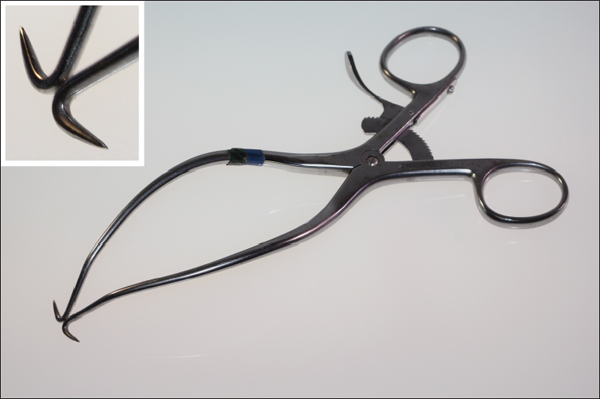
Long Gelpi Retractor
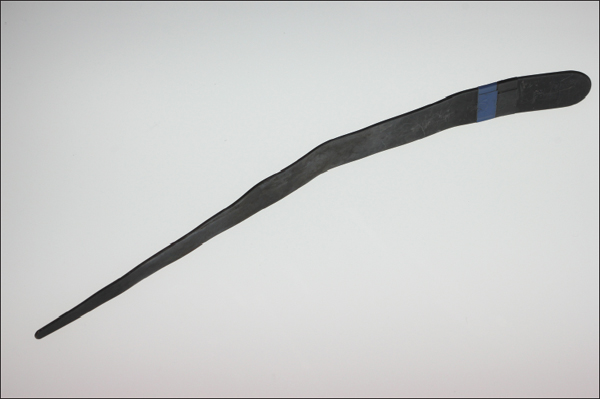
Malleable Brain Retractor
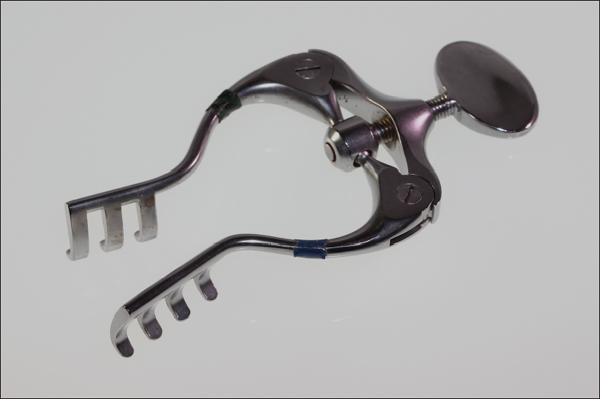
Mastoid Retractor
< div class='tao-gold-member'>
Basic Neurosurgical Instrumentation
Only gold members can continue reading. Log In or Register to continue

Full access? Get Clinical Tree








